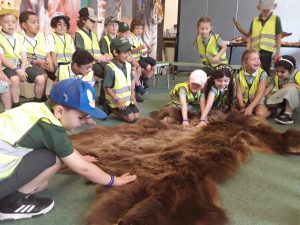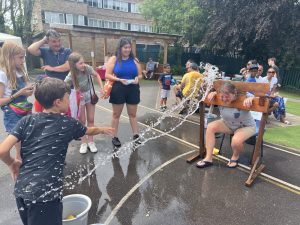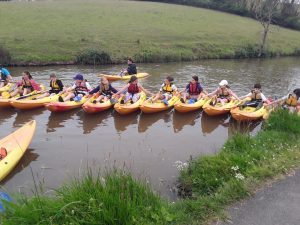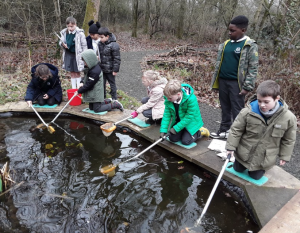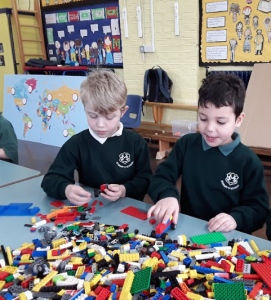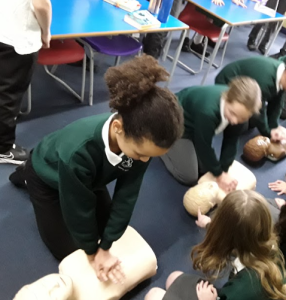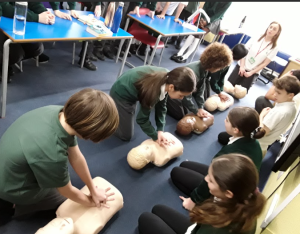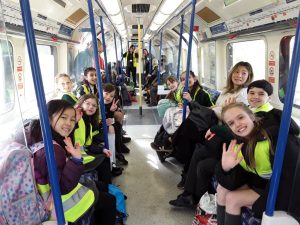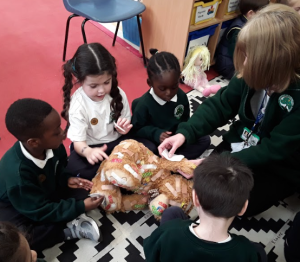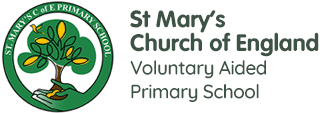PSHE
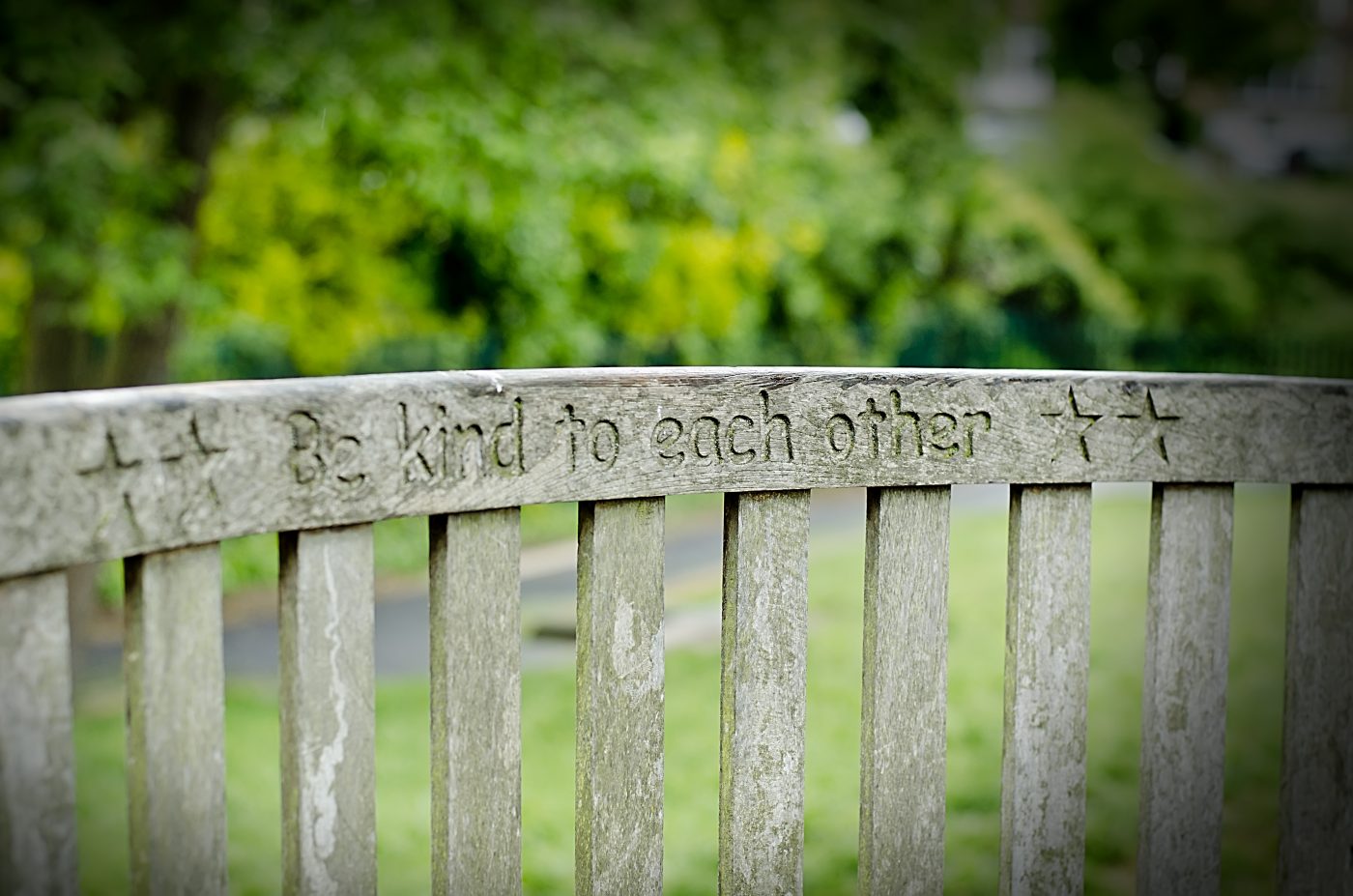
PSHE
Our new scheme of work is called ‘Jigsaw’ and offers a mindful approach to PSHE. Jigsaw is structured into 6 half-termly Puzzles (units), with the whole school studying different pieces of the same puzzle at the same time. The puzzles are sequential and developmental from September to July.
Intent:
Quality PSHCE should provide children with a greater sense of self, understanding of forming relationship with others and the impact of the word around them. Each topic is built upon year on year, which should allow the children to gain a deeper and more sophisticated understanding of key concepts. As topics are developed and adapted for specific classes, the repetition enables children of all needs to access information.
The content covered by the children should provide them with crucial skills for independent problem solving. At St. Mary’s we encourage all children to be the best they can be. Skills provided in lessons, such as how to deal with bullying and how to build and sustain friendships, are lifelong lessons that should help mould children into their future selves. Our PSHCE curriculum provides children with a safe space to explore and practise these skills. This included the use of role play and learning about others experiences. The learning taking place should provide children with a greater understanding of themselves which will enable them to have a positive impact on the world through their actions.
Implementation:
Jigsaw, is a primary Scheme of Work for PSHE education, including 288 lesson plans and supporting teaching materials. The whole school engages in one theme at a time across all year groups, with 6 themes over the course of a year, one per half term.
The Jigsaw Charter below specifies the agreement between the children and staff in each PSHE lesson.
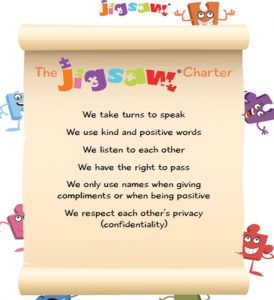
- The teaching strategies outlined are varied and are mindful of preferred learning styles and the need for differentiation.
- The included ‘Jigsaw friends’ characters are unique to each year group and integral to each lesson. They are valuable teaching aides, especially for issues some pupils may consider sensitive.
- The Scheme of Work also focuses on developing mindfulness techniques and enhancing pupils’ learning and personal development, therefore supporting the self- regulation of emotion, building of emotional resilience and enhancement of pupil focus and concentration, while building the capacity to learn.
- Taken from: www.PSHEassociation.co.uk
The units are as follows:
- Being Me in My World
- Celebrating Difference
- Dreams and Goals
- Healthy Me
- Relationships
- Changing Me
Please click on this link to see an overview of our PSHE curriculum: Curriculum Overview PSHE
Relationships, Sex and Health Education (RSHE):
RSHE is part of the personal, social and health education curriculum in our school. We teach using the Jigsaw scheme and within a framework of Christian values and the Christian understanding that sex is a gift of God as part of creation. Whilst we use RSHE to inform children about sexual issues, we do this with regard to matters of morality and individual responsibility, and in a way that allows children to ask and explore moral questions. Sensitivity and respect should be shown to all children when teaching about personal relationships and RSHE is taught in a way to ensure that there is no stigmatization of children based on their home/personal circumstances. Click here to view our RSHE policy
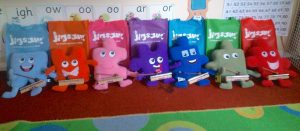
Please click on the documents below to find out more about these individual units across the school and also to see how British Values teaching is woven into learning. Each overview demonstrates the progression of learning across the school.
British-values-in-jigsaw-by-puzzle-and-year-group
Reception learning overview of objectives
year-1-learning overview of objectives
year-2- learning overview of objectives
year-3- learning overview of objectives
year-4- learning overview of objectives
year-5- learning overview of objectives
year-6- learning overview of objectives
Adaptations for children with SEND:
At St. Mary’s, we recognise the importance of equipping all the children with essential skills for life and that for some children, having SEND can add additional vulnerability. In order to ensure that children with SEND can fully access the PSHE curriculum, including RSHE, teachers make adaptations based on the knowledge of learners’ needs, in consultation with the SENCO or in accordance with any specific targets on support plans. Strategies for purposeful inclusion can include:
- Re-visiting, re-enforcing, consolidating previous learning and essential vocabulary
- Re-visiting content through cross-curricular learning
- Including different sensory experiences to promote physical, social and emotional understanding
- Adapting resources to make them more accessible e.g. adding labels with key vocabulary to RSHE diagrams
- Ensuring children with literacy difficulties have writing scaffolds to support them with their recording.
- Pairing children up carefully so that they have exposure to effective models of language in speaking and listening PSHE exercises
- Liaising with parents of children with complex needs to provide additional resources for RSHE learning at home.
Wider enrichment opportunities:
Participation in whole school events such as sports day, performances and Summer and Christmas Fayres instill a genuine sense of community and belonging in our children. Our ‘house’ system fosters opportunities to take social responsibility and promotes teamwork throughout the school. We also run an effective buddy system between our Year 6 and Reception children.
Opportunities to develop team building skills come through participation in Sporting events, various classroom activities, residential visits and other educational trips.
